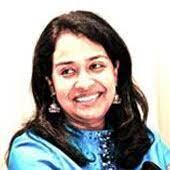Event time:
Wednesday, April 10, 2024 - 4:30pm
Location:
Luce Hall 202 (34 Hillhouse Avenue)
Event description:
Temple Tracks presents a textured tale of the complex ties between labour, mobility and piety. Here, I use the history of colonial railway construction in British Malaya to narrate the interlocking accounts of Indian, Hindu labour migrations into British Malaya and the sacralization of these landscapes by labouring communities in building shrines and temples for Hindu deities in the vicinity of labour lines, railway stations, locomotive sheds, railway workshops and simply along the railway tracks. Strikingly, the migrant labour who laid the railway tracks and maintained them were also pioneering religion makers. This specific case of railway construction and temple-building enables me to demonstrate the intriguing entanglements of technology and piety on the one hand, and labour and religion-making on the other - and to retell railway histories by centring the ‘labouring’ and ‘non-labouring’ lives of labour. Using ethnographic methods and a historical perspective, Temple Tracks critically outlines the interlink of railway construction in colonial and post-colonial Asia, as well as the anthropology of infrastructure and transnational mobilities with religion. In Malaysia and Singapore, evidence of religion-making and railway-building from a colonial past is visible in multiple modes and media as memories, recollections and ‘traces’.
Speaker Bios:
Vineeta Sinha is a professor and teaches at the Department of Sociology and Anthropology at the National University of Singapore. Her research interests include Hindu religiosity in the Diaspora, intersections of religion, commodification and consumption processes, interface of religion and materiality, religion-state encounters in colonial and post-colonial contexts, Eurocentric and Androcentric critique of social science disciplinary canons, and producing decolonial pedagogies. Her publications include the following books: Temple Tracks: Labour, Piety and Railway Construction in Asia (2023), Southeast Asian Anthropologies (co-edited with Eric Thompson, 2019), Sociological Theory Beyond the Canon (co-authored with Syed Farid Alatas, 2017), Singapore Chronicles: INDIANS (2015), Food, Foodways and Foodscapes: Culture, Community and Consumption in Post-Colonial Singapore (co-edited with Lily Kong, 2015), Religion-State Encounters in Hindu Domains: From the Straits Settlements to Singapore (2011), Religion and Commodification: Merchandising Diasporic Hinduism (2010) and A New God in the Diaspora? Muneeswaran Worship in Contemporary Singapore (2005).
Sunil Amrith is the Renu and Anand Dhawan Professor of History at Yale University, with a secondary appointment as Professor at the Yale School of the Environment. He is also the current Chair of the Council on South Asian Studies at the Whitney and Betty MacMillan Center for International and Area Studies. Amrith’s research focuses on the movements of people and the ecological processes that have connected South and Southeast Asia, and has expanded to encompass global environmental history.
Erik Harms is a professor of Anthropology & Southeast Asia Studies, Director of Graduate Studies, and serves as Chair of the Council on Southeast Asian Studies at Yale University. His recent work has focused on the uses and abuses of “culture” and “urban civility” in urban Vietnam, and how this civilizing discourse entwines with spatial action in ways that legitimize broad-scale privatization. While grounded ethnographically in Vietnam, his research and teaching seeks at all turns to connect with larger world-historic processes, unraveling the interaction between culture and politics, and the ways in which everyday acts are informed by larger political agendas.
Nurfadzilah Yahaya is an assistant professor of history at Yale specializing in the history of Southeast Asia, Indian Ocean history, legal history, history of infrastructure, and environmental history. Drawing on archival sources in Malay, French, Arabic, Dutch and English, she reconstructs family, religious, bureaucratic, and commercial legal orders across the Indian Ocean. She currently serves on the editorial boards of Journal of Southeast Asian Studies, Journal of Global History and Journal of Indian Ocean World Studies.
Courtney T. Wittekind is an assistant professor in the Department of Anthropology at Purdue University. Before joining the faculty at Purdue, she held postdoctoral positions at Yale University with the Program in Agrarian Studies and the Council on Southeast Asia Studies. Wittekind’s scholarship addresses three global transformations: uneven urban development, the growth of speculative investment, and the rapid expansion of digital and networked technologies.
Admission:
Free
